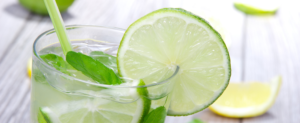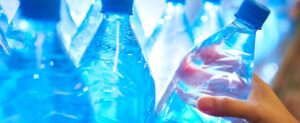Last year, the world’s largest beverage company, Coca-Cola, made its biggest acquisition since 2018. The beverage behemoth spent $5.6 billion to increase its stake in the sports nutrition brand BodyArmor from 30% to 100%.
According to commentators, the move aimed to gain them more of a share of the market from Pepsi-owned Gatorade. The company’s dive into the sports drinks space was strategically intended to help it remain on top and enable Coca-Cola to tap into a growing drink market.
The global sports drink market, which had an estimated value of $27.2 billion in 2021, is projected to expand to $36.35 billion by 2028. This growth is attributable to the many benefits of the drinks, especially in the wake of the pandemic as consumers are more and more health-conscious.
By definition, sports nutritional drinks are beverages enriched with electrolytes and carbohydrates. They help active users hydrate and replenish the minerals lost through sweating and energy lost while exercising.
Top Benefits of Sports Nutrition Drinks
The benefits of sports drinks are plentiful.
- They contain electrolytes, which offer numerous benefits, such as enhancing the health of the nervous system, ensuring pH balance, and more (as detailed above).
- The drinks hydrate and rehydrate the body, replenishing the fluid lost to sweat during intense workouts.
- Sports beverages contain energy-boosting carbohydrates, which in addition to providing energy, ensure you drink less.
- Ready-to-drink sports drinks offer convenience and delicious flavors.
Electrolytes are minerals that conduct electricity when they dissolve in water. Electrolytes include:
- Chloride
- Bicarbonate
- Phosphate
- Magnesium
- Potassium
- Sodium
- Calcium
The human body requires these minerals; when a person seriously lacks them, they are likely to experience muscle cramps, fatigue, confusion, fever, nausea and vomiting, headaches, dry mouth, mood changes, irregular heart rate, and more. That’s why electrolytes add a powerful punch to sports drinks.
Not just for athletes, sports drinks with electrolytes can be advantageous to anyone with a mineral deficiency. They also are beneficial to people on a diet, such as a ketogenic diet, and women who are pregnant.
Trends in the Sports Nutrition Drinks
Before the pandemic struck, the sports beverage market looked shaky. In fact, it faced stiff competition from other beverage segments, with analysts having mixed opinions regarding the industry’s ability to weather the storm. In 2017, for instance, the sector experienced a slump in sales compared to the year before. The decline, observers noted, mimicked the fate befalling carbonated sodas, which had, at that time, been experiencing a consistent drop in sales as consumers become more conscious about the sugar content.
Even so, the sports drinks segment witnessed a marginal increase in sales after 2017 and 2018, though the future growth projections remained subtle. In the 12 months to May 2018, the sales grew 5.8% to $6.59 billion and continued to climb.
But this narrative changed with the emergence of the COVID-19 pandemic, which closed down gyms, fitness centers, team practices, and live sporting events to limit human-to-human contact.
The closure had a direct effect on the consumption of sports nutrition drinks. It initially meant that fewer people were working out and, therefore, only a few individuals consumed the drinks. However, the closure and, by extension, the pandemic sparked a home-workout revolution. Fitness-conscious people built home gyms, bought fitness gear and apparel, and downloaded apps. The more they exercised, the more they required sports beverages for active people, translating to higher demand and sales.
As a result, the IRI reported that the U.S. sports beverages category grew by 15.6% in the 12 months to May 2021, reaching over $8.3 billion. By sub-category, the aseptic beverage class experienced the most growth at 64.8%, followed by sports drink mixes at 42.9%, and, finally, non-aseptic sports beverages, which grew at 15.2%.
Overall, interest in sports beverages grew in 2020 even among the non-fitness-conscious populace; more people sought drinks that could optimize their health amid the uncertainty of the pandemic. According to experts, the year saw people becoming more health-conscious, resulting in an increase in consumers’ interest in functional beverages by 11%.
Today, consumers no longer just want good-tasting beverages that keep them hydrated; they also want drinks with added health benefits. And functional beverages such as sports and protein drinks serve this function.
Future Outlook on the Sports Nutrition Drink Market
Based on projections, the market is expected to experience growth well into the future.
But how do you have success in a competitive market like the sports drink market? It all starts with the right formulation that blends key beneficial ingredients to create a product that offers health benefits, convenience, and great flavor.
At WiseBev, we understand the beverage market; you can count on our expertise to help you develop a successful sports nutrition beverage. Book a call with us today to learn how.







